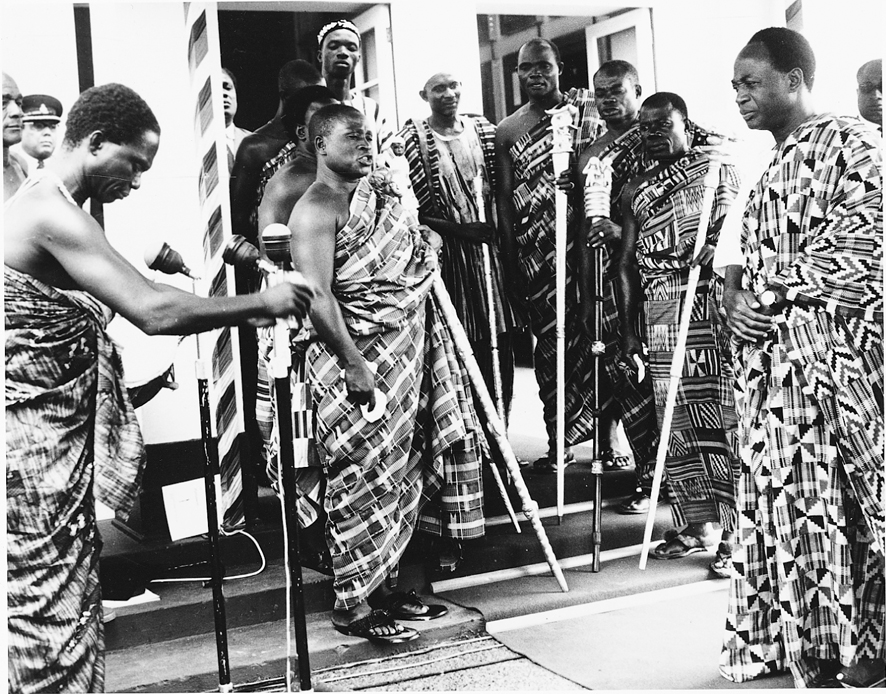A History of World Societies:
Printed Page 975
A History of World Societies Value
Edition: Printed Page 988
Ghana Shows the Way
The most charismatic of this generation of African leaders was Kwame Nkrumah (KWA-
Nkrumah came to power by building a radical party that appealed particularly to modern groups — veterans, merchant women, union members, urban toughs, and cocoa farmers. He and his party injected the joy and enthusiasm of religious revivals into their rallies and propaganda: “Self-

After he was arrested in 1950, the “Deliverer of Ghana” campaigned from jail and saw his party win a smashing victory in the 1951 national elections. Called from prison to head the transitional government, Nkrumah and his nationalist party defeated westernized moderates and more traditional political rivals in free elections. By 1957 Nkrumah had achieved worldwide fame and influence as Ghana became independent. After Ghana’s breakthrough, independence for other African colonies followed rapidly. The main problem in some colonies, such as Algeria, was the permanent white settlers, not the colonial officials. Wherever white settlers were numerous, as in Kenya and Rhodesia, they fought to preserve their privileged position.